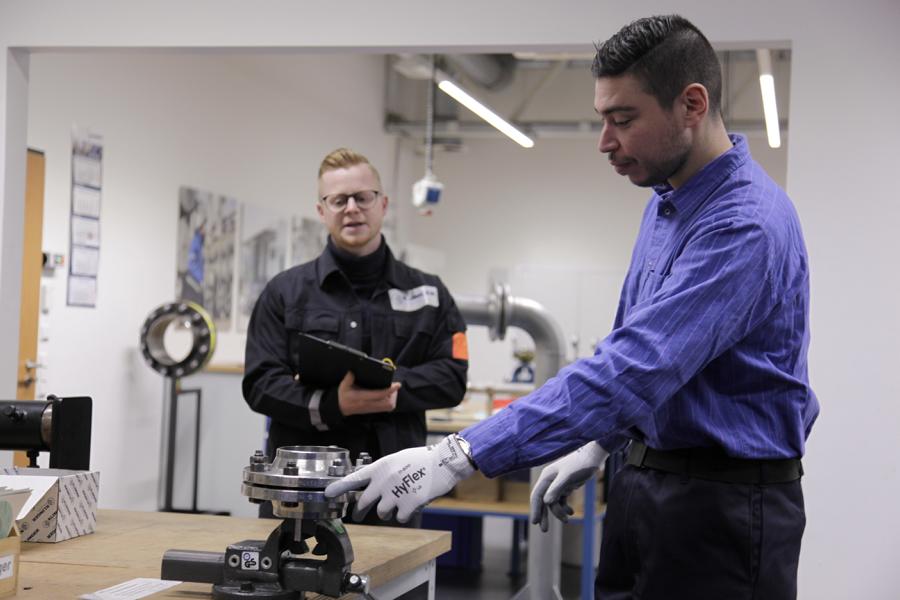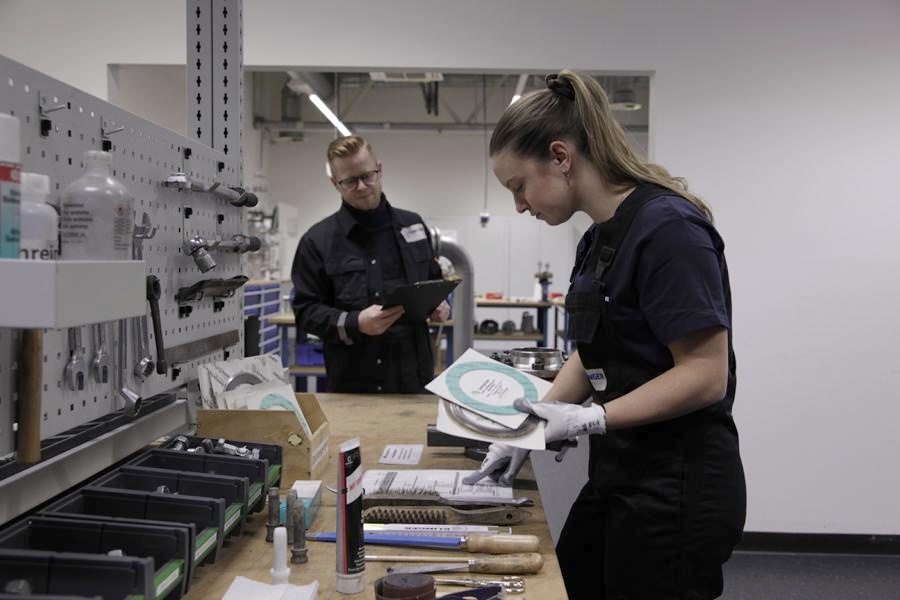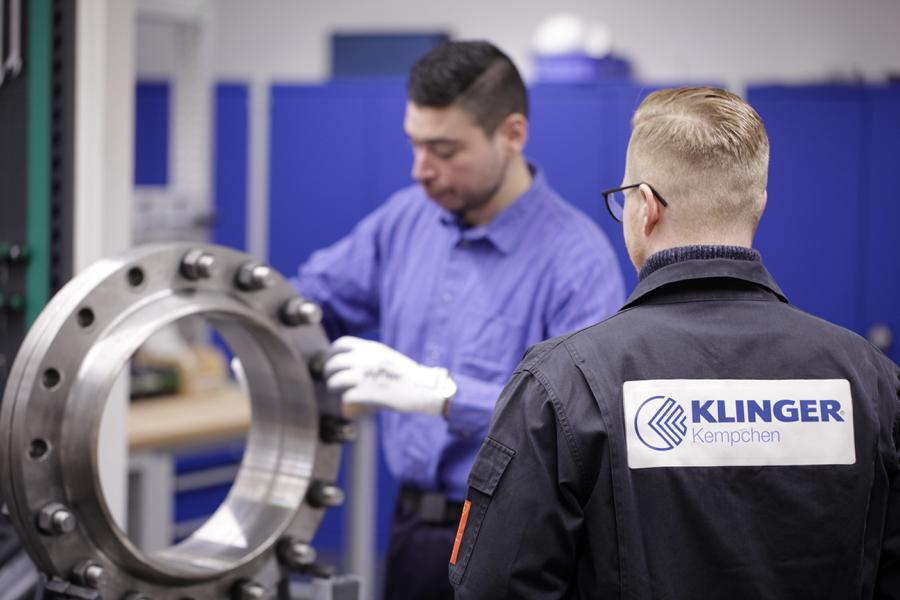FLANGE ASSEMBLY COMPETENCE TEST
Bolted flange connections are a crucial aspect of plant engineering in the chemical and petrochemical industry. A failure in these flange connections can pose significant risks to the safety of both humans and the environment, accompanied by high costs for downtime, repairs, and production losses. In many cases, inadequate assembly is the cause of critical flange connection failures. Therefore, the TA-Luft mandates that operators ensure the qualification of flange assembly personnel.
To verify the qualification of assembly personnel, operators typically require a qualification certificate according to DIN EN 1591-4. However, in practice, especially during larger plant shutdowns with international assembly personnel, it has been observed that personal knowledge and experience may not always meet the requirements despite the existence of a qualification certificate.
As a supplement to the qualification certificate according to DIN EN 1591-4, the Flange Assembly Competence Test was developed for assessing the personal suitability of the assembler and examining operator-specific requirements.
The goal of the Flange Assembly Competence Test is to individually and practically assess the capabilities of the flange assembler. Practical bolting tasks are presented, such as those involving flange connections with offsets. An assessor evaluates each step of the work using an assessment matrix. This includes aspects such as preparing the workspace, correctly using personal protective equipment, selecting the prescribed materials, checking material quality, lubricating the screw threads and nut seating surface, aligning the flanges, handling the torque wrench, and applying the specified torques.
The Flange Assembly Competence Test provides the operator with a realistic assessment of whether the assembler has sufficient experience and competence in flange assembly. This significantly reduces the risk of leaks in flange connections due to assembly errors.





